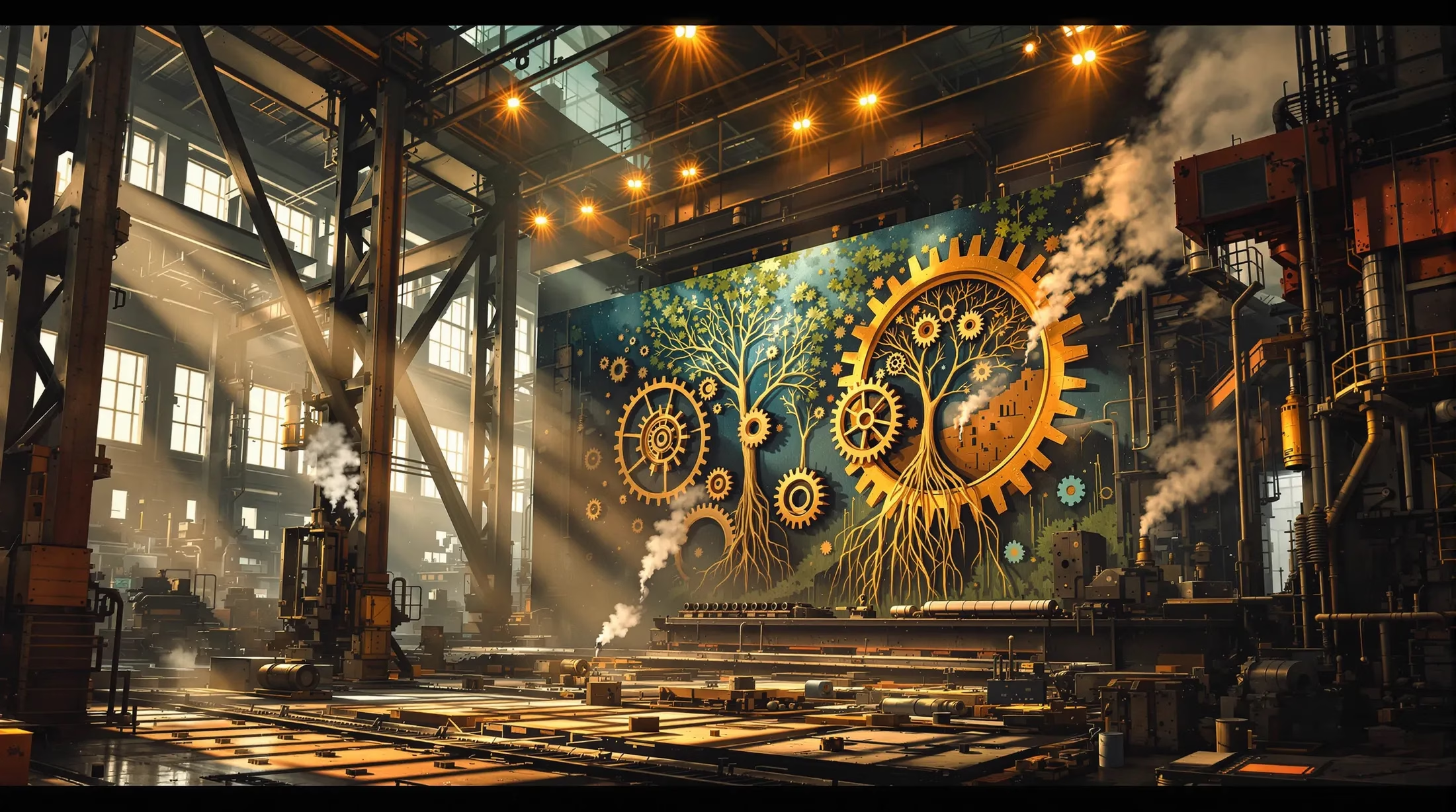Manufacturing Careers: Explore Opportunities and Growth in the Industry
Looking to build a rewarding career in one of the most dynamic and innovative sectors of the global economy? The manufacturing industry offers diverse opportunities for professional growth, technological advancement, and competitive compensation. Let’s explore what makes manufacturing careers both challenging and rewarding in today’s evolving industrial landscape.
Understanding the Manufacturing Industry
The manufacturing industry transforms raw materials into intermediate or final products, serving as a cornerstone of the global economy. As one of the 16 career clusters in career and technical education (CTE), this sector creates a comprehensive value chain that extends from material extraction to sophisticated product development. The industry’s impact reaches far beyond production facilities, driving innovation and technological advancement across all sectors.
The Role of Manufacturing in the Economy
Manufacturing serves as a powerful economic catalyst, generating substantial value at every production stage. Here are the key economic impacts:
- Every dollar spent in manufacturing adds $1.89 to the economy – the highest multiplier effect of any sector
- Provides higher wages and better benefits compared to service sector positions
- Drives approximately 70% of private-sector research and development
- Creates intellectual property and proprietary production methods
- Strengthens the middle class through stable, well-paying jobs
Types of Manufacturing Careers
| Career Category | Roles | Key Responsibilities |
|---|---|---|
| Production | Machine operators, assemblers, fabricators | Operating CNC machines, 3D printers, assembly systems |
| Quality Control | Specialists, inspectors | Testing, specification compliance, quality assurance |
| Engineering | Mechanical, industrial, electrical engineers | Product design, process optimization, systems development |
| Advanced Manufacturing | Robotics programmers, automation specialists | Programming, system design, data analytics |
Skills and Qualifications for Manufacturing Careers
Success in modern manufacturing requires a strategic combination of technical expertise and adaptability. Today’s sophisticated manufacturing environments demand professionals who can operate advanced equipment while staying current with evolving technologies and processes.
Essential Technical Skills
- Analytical and problem-solving abilities for complex operational challenges
- Proficiency in CAD software and production planning tools
- Understanding of automation systems and data analytics
- Experience with quality control methodologies
- Knowledge of lean manufacturing and Six Sigma principles
- Ability to read and interpret technical drawings and schematics
- Expertise in specific manufacturing methodologies (TQM, mechatronics, precision machining)
Importance of Soft Skills
- Attention to detail – critical for quality control positions, preventing costly errors and identifying subtle process variations
- Problem-solving abilities – enables effective troubleshooting and process improvements alongside technical knowledge
- Adaptability – essential for embracing new technologies and methodologies in rapidly evolving manufacturing environments
- Communication skills – crucial for articulating technical concepts and providing clear instructions across departments
- Leadership capabilities – vital for advancement into supervisory roles, including team management and mentoring
- Time management – helps maintain production schedules and coordinate complex workflows
- Cultural awareness – provides competitive advantage in global manufacturing operations
- Initiative – demonstrated through identifying inefficiencies and proposing solutions
Educational Pathways into Manufacturing
The manufacturing industry provides multiple entry points through diverse educational pathways, each aligned with specific career goals and skill requirements. As technology transforms manufacturing processes, educational options have expanded to prepare individuals for both traditional and emerging roles. These pathways offer stable, well-compensated employment opportunities through competency-based education models that emphasize practical knowledge and demonstrable abilities.
Vocational Training and Apprenticeships
| Program Type | Duration | Key Features |
|---|---|---|
| Vocational Training | Several months to 2 years | Specialized hands-on education, industry partnerships, immediate job readiness |
| Apprenticeships | 1-4 years | Paid on-the-job training, 94% retention rate, $70,000+ average starting salary |
Higher Education Options
- Bachelor’s degrees in engineering disciplines (mechanical, industrial, electrical, chemical)
- Engineering technology programs focusing on practical applications
- Specialized manufacturing engineering programs
- Advanced manufacturing technology and robotics engineering degrees
- Associate degrees in manufacturing technology
- Stackable credential pathways
- Flexible learning formats (online, evening, weekend programs)
Current Trends in the Manufacturing Industry
The manufacturing landscape is experiencing a revolutionary transformation, moving beyond traditional production methods into a technology-driven future. This evolution emphasizes efficiency, sustainability, automation, and digital technology integration. Modern manufacturing facilities have evolved dramatically from their predecessors, with interconnected systems and smart technologies becoming standard practice.
- Technological proficiency replacing physical requirements
- Integration of Industry 4.0 principles
- Artificial intelligence implementation
- Advanced robotics systems
- Machine learning applications
- Data analytics integration
Impact of Automation
| Automation Benefits | Business Impact |
|---|---|
| Enhanced scalability | Increased production speeds |
| Reduced operational costs | Improved equipment efficiency |
| Optimized scheduling | Enhanced market competitiveness |
| Waste reduction | Greater precision and reliability |
Sustainability Initiatives
- Comprehensive green initiatives beyond basic compliance
- Renewable energy source integration
- Closed-loop recycling systems implementation
- Development of biodegradable materials
- Energy-efficient equipment upgrades
- Water conservation systems
- Zero-waste production goals
- Circular economy principles adoption
Opportunities for Career Advancement
The manufacturing sector provides robust career advancement pathways across diverse roles in engineering, production, quality control, and management. The industry’s commitment to internal promotion creates tangible opportunities for growth, with many senior leaders having started on the production floor.
Pathways to Advancement
- Technical Specialist Path: Entry-level to lead machinist, master welder, or CNC programmer
- Supervisory Track: Team member to operations manager or plant manager
- Quality Systems: Quality inspector to director of quality assurance
- Strategic Development: Cross-training, certifications, mentorship programs
- Continuous Improvement: Lean and Six Sigma methodology expertise
Potential Salary Ranges
| Position Level | Salary Range | Additional Benefits |
|---|---|---|
| Entry-level Production | $35,000 – $45,000 | Shift differentials, overtime |
| Skilled Trades | $40,000 – $90,000 | Certification bonuses |
| Technical Specialists | $60,000 – $100,000 | Performance incentives |
| Production Supervisors | $65,000 – $85,000 | Management bonuses |
| Engineers | $70,000 – $120,000+ | Comprehensive benefits |
| Executive Leadership | $90,000 – $150,000+ | Performance bonuses, stock options |
The Importance of Certifications and Ongoing Training
In modern manufacturing, certifications and continuous training serve as essential stepping stones for career advancement. The industry’s technological evolution demands professionals who can adapt and grow their expertise through formal credentials and ongoing education. These qualifications have become vital indicators of competency, particularly as manufacturing processes become increasingly sophisticated.
Key Certifications in Manufacturing
- Production Specialists – Certified Production Technician (CPT) certification for safety, quality, and maintenance expertise
- Quality Management – ASQ Certified Quality Technician and Quality Engineer designations
- Advanced Manufacturing – Specialized certifications in robotics, additive manufacturing, and PLC systems
- Leadership Roles – Certified Manufacturing Manager (CMM) and Lean Six Sigma certifications
- Technical Systems – Manufacturer-specific certifications from Siemens, Allen-Bradley, and FANUC Robotics
Benefits of Continuous Learning
- Enhanced adaptability to technological advancements
- Improved job security through expanded skill sets
- Access to higher-paying positions and leadership roles
- Development of cross-functional expertise
- Increased value to employers through specialized knowledge
- Better positioning for industry innovations
- Enhanced career mobility across manufacturing sectors
Working Environment and Culture in Manufacturing
The modern manufacturing environment has transformed dramatically from traditional industrial settings. Today’s facilities feature clean, technology-driven spaces that prioritize both employee safety and productivity. Advanced manufacturing plants incorporate ergonomic workstations, climate control systems, and sophisticated safety protocols, reflecting the industry’s dedication to attracting and retaining skilled talent in a competitive market.
The sector’s cultural evolution emphasizes collaboration and innovation, with companies actively seeking input from employees at all levels. This approach recognizes that frontline workers often provide valuable insights for process improvements and product development. As operations become increasingly automated, organizations focus on building positive workplace cultures that support:
- Continuous learning opportunities
- Cross-functional team collaboration
- Personal development initiatives
- Innovation and process improvement
- Employee engagement and satisfaction
Typical Work Environment
| Aspect | Characteristics |
|---|---|
| Operating Schedule | 24/7 operations with three-shift system |
| Workspace Organization | Production cells and assembly lines with integrated robotics |
| Safety Measures | PPE requirements, machine guarding, comprehensive training |
| Facility Design | Natural lighting, improved air quality, comfortable break areas |
| Monitoring Systems | Digital tracking of environmental conditions and equipment performance |
Company Culture and Values
Quality-focused culture stands as a cornerstone of successful manufacturing organizations. This commitment manifests through comprehensive training programs and recognition systems that reward error prevention and process improvements. Employees understand their direct impact on product quality and customer satisfaction, leading to increased ownership and participation in improvement initiatives.
- Formal mentoring programs and cross-training opportunities
- Clear career advancement pathways
- Team-based problem-solving approaches
- Regular improvement activities and departmental collaboration
- Emphasis on innovation and sustainability
- Strong value systems that attract and retain skilled workers
Challenges and Future Outlook for Manufacturing Careers
The manufacturing industry faces a complex landscape of challenges and opportunities. While certain traditional roles may decline, the Bureau of Labor Statistics projects 67,800 annual openings in quality control positions alone. This paradox reflects the industry’s evolution, where automation creates new roles while maintaining strong demand for skilled professionals.
Addressing Labor Shortages
- Development of comprehensive talent pipelines through educational partnerships
- Investment in internal learning and development programs
- Expanded recruitment efforts targeting adjacent industries
- Competitive compensation packages and clear advancement opportunities
- Enhanced workplace conditions and modern facility designs
- Partnerships with trade schools and community colleges
- Creation of robust internal training initiatives
Supply chain disruptions represent one of the most pressing challenges facing modern manufacturing operations. These challenges manifest through multiple vectors: natural disasters, shifts in global politics, shipping delays, pandemic-related restrictions, and volatile market conditions. The COVID-19 pandemic dramatically illustrated this vulnerability, exposing weaknesses in just-in-time inventory systems and single-source supplier dependencies.
- Diversifying supplier bases to reduce single-source dependencies
- Implementing advanced forecasting tools for demand prediction
- Establishing stronger relationships with logistics partners
- Adopting real-time supply chain management software
- Developing proactive risk management strategies
- Creating robust distribution network visibility
Resources for Aspiring Manufacturing Professionals
The manufacturing sector offers diverse specialized tools designed to facilitate career exploration and advancement. These resources serve as crucial bridges between talent and opportunity, providing comprehensive job listings, industry insights, and professional development opportunities. Organizations like the Society of Manufacturing Engineers (SME) deliver dedicated career sections featuring job opportunities and development resources.
Job Boards and Career Fairs
| Resource Type | Key Features |
|---|---|
| Specialized Job Boards | Targeted listings, robust search filters, certification requirements, resume management |
| Virtual Career Fairs | Remote networking, multiple employer access, live chat features |
| In-Person Expos | Direct hiring manager access, resume workshops, interview preparation |
| University Events | Entry-level opportunities, apprenticeships, training programs |
Industry Associations and Networking
- National Association of Manufacturers (NAM) – industry research and specialized training
- Manufacturing Institute – certification opportunities and career development
- Association for Manufacturing Excellence (AME) – best practices and operational excellence
- Trade shows (FABTECH, IMTS) – technology exposure and networking
- Online communities – professional forums and knowledge sharing
- Committee participation – deeper industry engagement opportunities
Networking remains a powerful career advancement tool, with professional connections often leading to mentorship opportunities and job referrals. Online platforms like LinkedIn’s manufacturing groups and Reddit’s r/manufacturing provide spaces for professionals to share experiences, troubleshoot challenges, and discuss industry trends.







